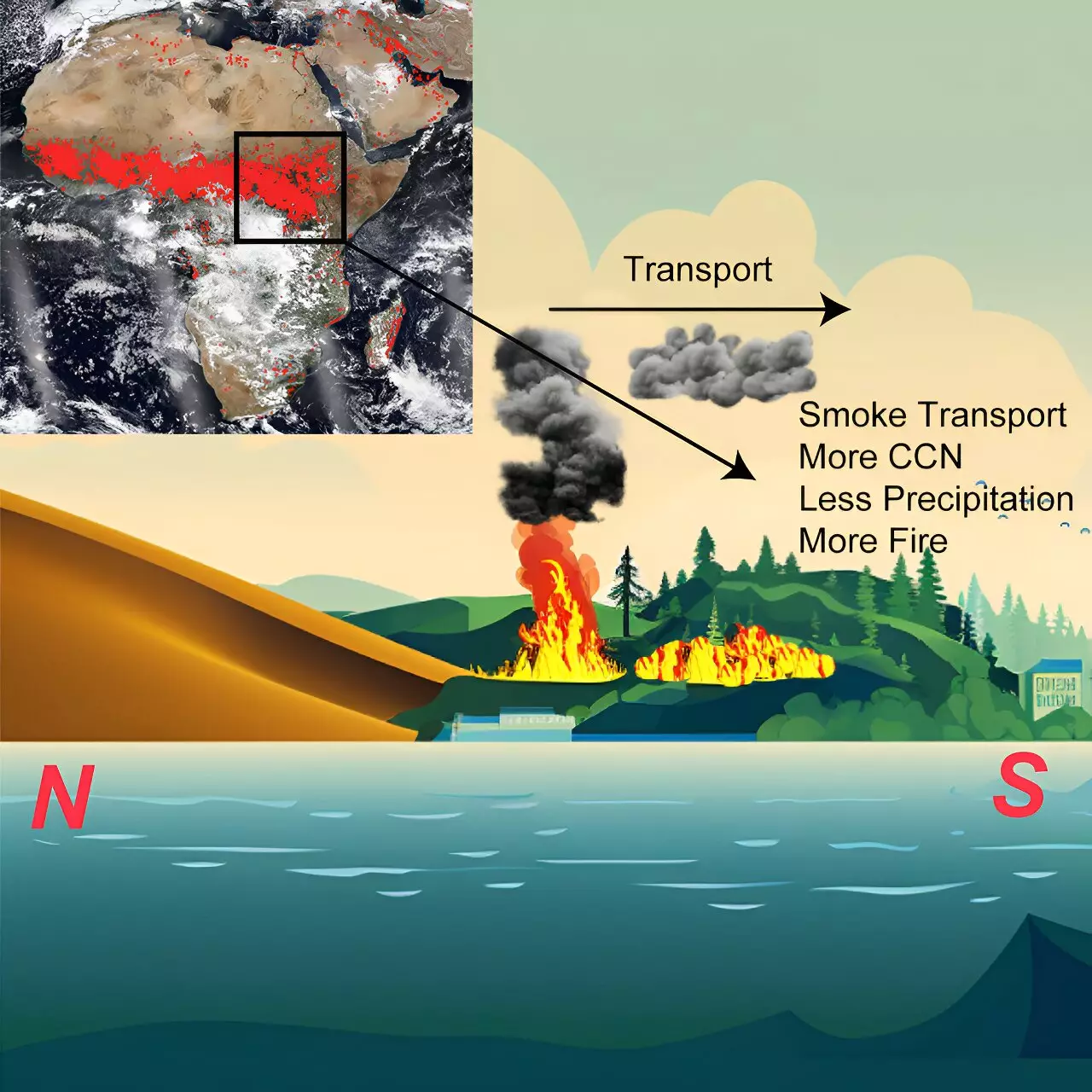Africa, known as the “burning continent,” is facing a severe wildfire crisis that shows no signs of stopping. With more than 50% of the Earth’s burning area, Africa experiences a perpetual conflagration that is only intensifying with time. This relentless wildfire season is not only destructive in itself but also contributes to a cycle of increasing wildfires and elevated fire seasons in subsequent years. The impact is not limited to Africa alone; it has significant implications for understanding the effects of fires and climate change across the globe.
Aerosols, small particles suspended in the atmosphere, play a crucial role in Earth’s climate. These particles can be human-induced air pollution or natural substances such as sea spray, mineral dust, volcanic ash, and wildfire smoke. The interaction between aerosols and the climate is complex, but a new study conducted by researchers at Georgia Tech reveals their role in fueling the African wildfire life cycle. Contrary to previous belief, this study highlights that aerosols have a longer-term and broader influence on climate than initially thought.
The Wang lab at Georgia Tech is dedicated to unraveling the mysteries of atmospheric pollution. In their latest research, they developed the Region-Specific Ecosystem Feedback Fire (RESFire) Model, a tool that enhances the existing Community Earth System Model (CESM). By improving CESM’s fire simulation capability, the researchers gained new insights into the complex interactions among fire, climate, and ecosystems. Their study focused on Africa and uncovered the extension of aerosols’ lifespan through a positive feedback mechanism.
Aerosols emitted during wildfires can disrupt cloud formation by absorbing vapor from the atmosphere, hindering the growth of large cloud droplets. This interference reduces precipitation and creates drier fuel loads, exacerbating the wildfire problem. In Africa, fire aerosols are transported from burning or dry regions to wet ones, leading to reduced precipitation and further drying of the fuel. This positive feedback mechanism amplifies the current fire season and perpetuates burning in subsequent seasons, unlike coastal regions where the aerosol feedback effect diminishes after each fire season.
Africa’s unique combination of shifting fire regions and prevailing winds intensifies the positive feedback mechanism and amplifies the wildfire crisis. Over the past four decades, the continent has experienced a significant increase of up to 40% in its fire weather season. This alarming trend suggests potential shifts in the distribution and variability of burned areas. However, the study highlights a glimmer of hope – the self-sustaining nature of the feedback mechanism and its built-in resilience.
While the positive feedback mechanism in Africa has some resilience, the question looms about its response to persistent global climate change. As climate change continues to unfold, it is unclear how the wildfire crisis in Africa will evolve. The study conducted by the Wang lab sheds light on the complex relationship between wildfires, aerosols, and climate in Africa, but further research is needed to fully comprehend the long-term implications of this self-sustaining mechanism.
Africa’s wildfire problem is an ongoing crisis that demands immediate attention. With the continent experiencing more than half of the Earth’s burning area, the perpetual conflagration and aerosol feedback mechanism contribute to a never-ending cycle of destruction. This study by Georgia Tech researchers provides important insights into the role of aerosols in fueling wildfires and their impact on the African climate. It is a call to action for both policymakers and scientists to address the pressing issue of wildfires in Africa and to understand their broader implications for global climate change.


Leave a Reply